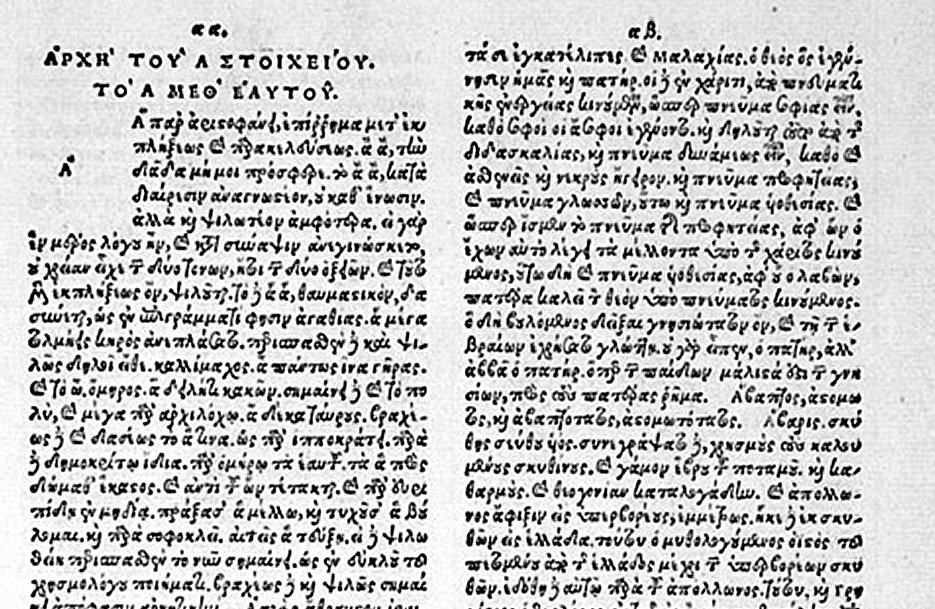MessageToEagle.com – An anonymous Byzantine Greek lexicon dated to the 10th century is known as “Suda” (from the Byzantine Greek word souda, meaning “fortress” or “stronghold.”
The Suda is an enormous historical work, arranged alphabetically and dedicated to the ancient Mediterranean world, which covers the whole of Greek and Roman antiquity.
It also includes Biblical and Christian material written in Greek.

The Suda (or The Book of Suda) quoted frequently under the Latin title ‘Liber Suda’ covers 30,000 slogans, of which about 900 are material articles, mostly historical and literary. In the absence of ancient sources, the book is an invaluable and in many cases the only source of historical information.
Justus Lipsius, a Flemish historian and philosopher, called this encycklopedia “ram with a golden rune”.
Preserved in several medieval manuscripts, this literary masterpiece has been edited and published several times since the end of the 14th century in traditional hard-copy scholarly editions.
See also:
Pax Romana: 200-Year-Long Period Of Stability Within The Roman Empire
Palermo Stone: Oldest History Book Of Ancient Egypt
Pax Mongolica: Time Of Peace And Stability That Helped To Spread Technologies And Inventions
The Suda contains a lot of classical knowledge and a great variety of drawings from ancient sources that have since been lost, and often derived from medieval Christian compilers. It is an ancient book of a very special kind (something between a modern encyclopedia and a grammatical dictionary) about Greek and Roman science and medicine.
For those who don’t want to be too scientific, there is a lot of information about Apollo, and how he prevented the oracles of the Chaldean Sibyl from being understood by the so-called ‘hoi polloi’.
You can learn about, Philoxenos, the tune-bender, who was considered the most courageous literary critic in history. You can find biographies, chronicles and the best quotations from many ancient writers, historians, dramatists, such as Homer, Sophocles, Aristophanes.
The English astronomer Edmund Halley (1656-1742) also studied the Byzantine lexicon “Suda” and
in 1691, he introduced to astronomy an important term ‘saros’, which defines a whole
series of subsequent eclipses, which divides the 18 years and 8 hours mentioned for 18 years.
The lexicon is arranged alphabetically with only some slight deviations from common vowel order and place in the Greek alphabet.
The Suda, which contains much useful information on ancient history and life, it also deals with a variety of biblical and pagan subjects, too.
Many scholars and their collaborative work during 16 years finally resulted in the first English translation of the entire Suda lexicon, a massive 10th century Byzantine encyclopedia.
The Suda is considered “a stronghold of information”.
Copyright © MessageToEagle.com This material may not be published, broadcast, rewritten or redistributed in whole or part without the express written permission of MessageToEagle.com






